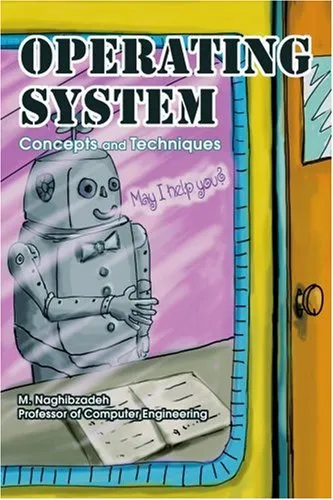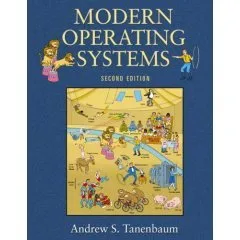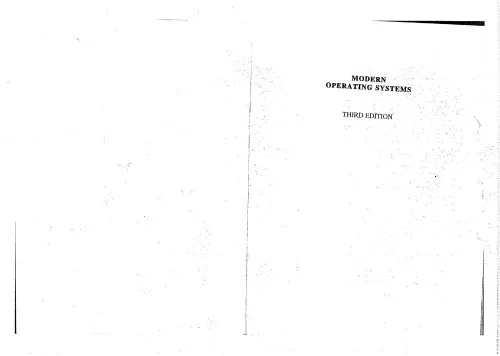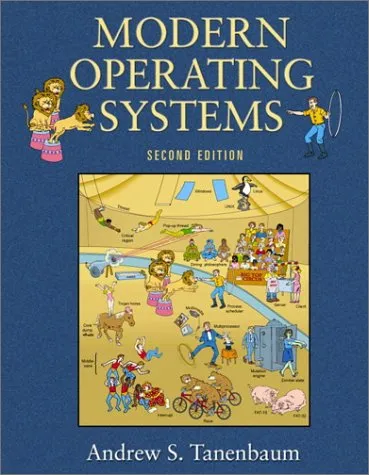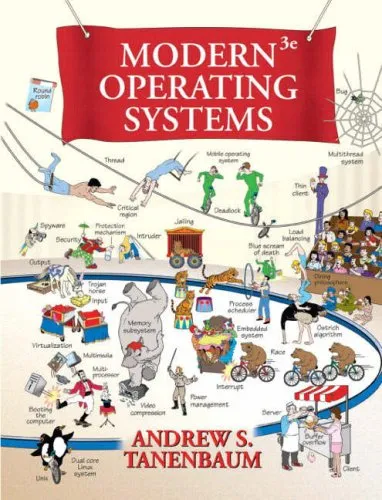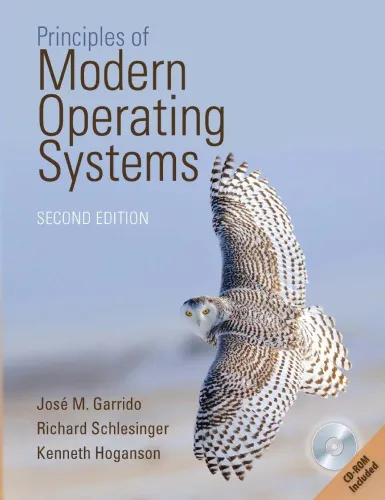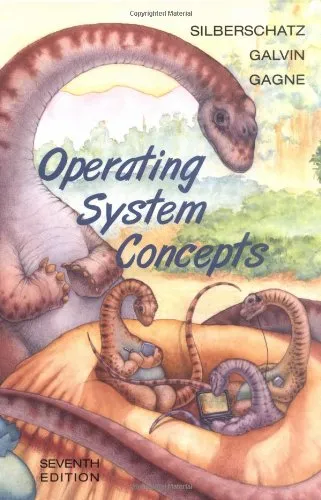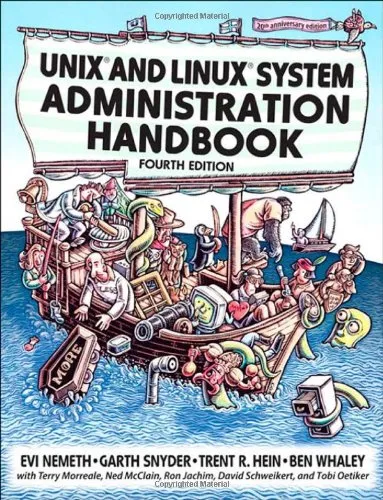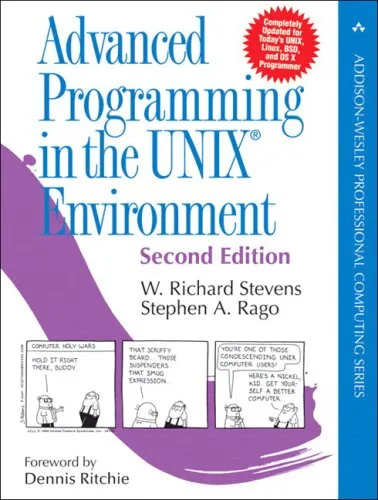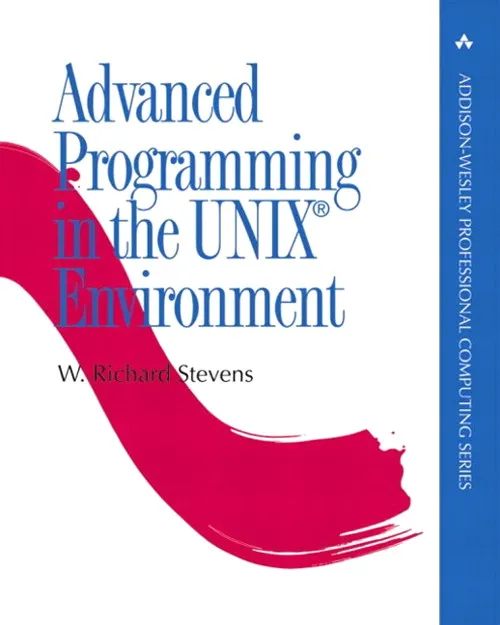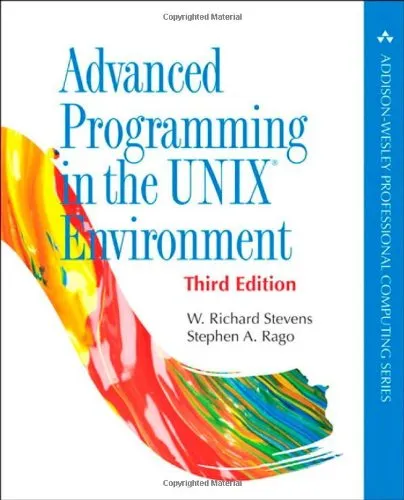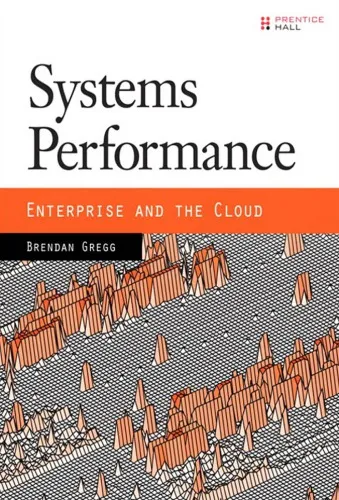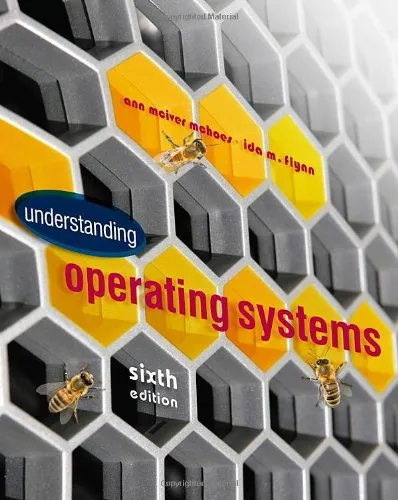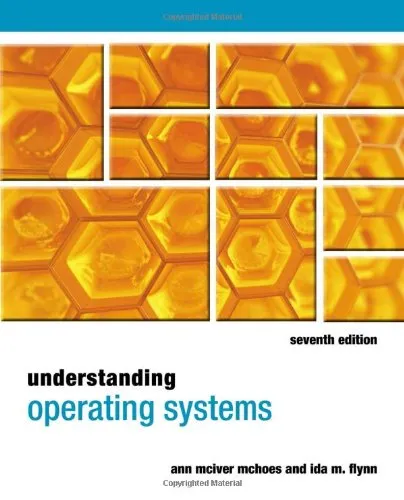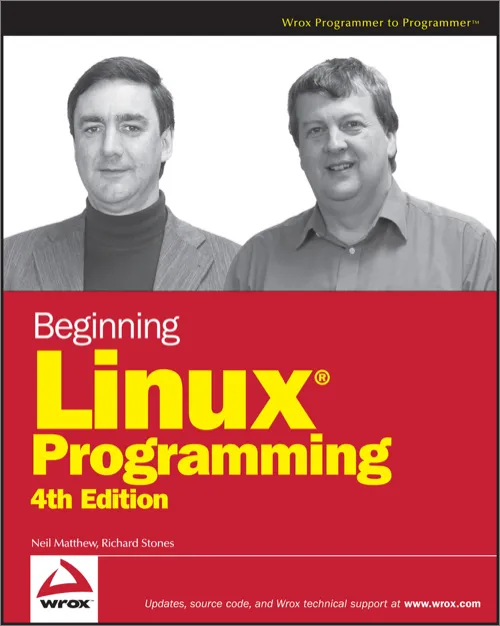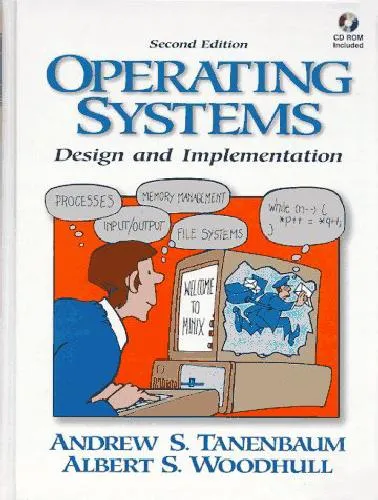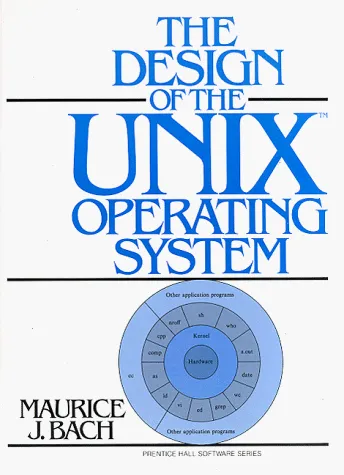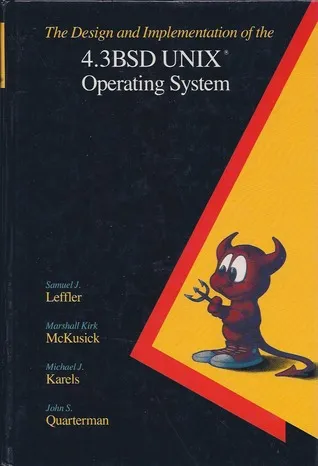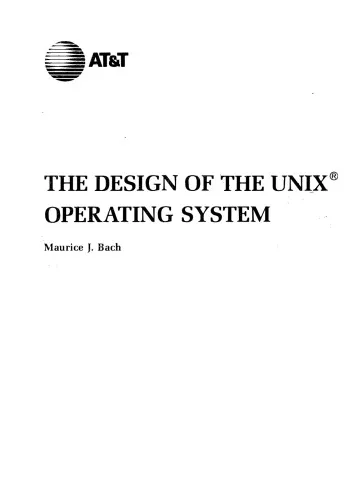Operating System: Concepts and Techniques
4.0
بر اساس نظر کاربران

شما میتونید سوالاتتون در باره کتاب رو از هوش مصنوعیش بعد از ورود بپرسید
هر دانلود یا پرسش از هوش مصنوعی 2 امتیاز لازم دارد، برای بدست آوردن امتیاز رایگان، به صفحه ی راهنمای امتیازات سر بزنید و یک سری کار ارزشمند انجام بدینکتاب های مرتبط:
Persian Summary
معرفی کتاب: سیستمعاملها: مفاهیم و تکنیکها
کتاب "سیستمعاملها: مفاهیم و تکنیکها" نوشتهی دکتر مهدی نقیبزاده، یکی از جامعترین و متعادلترین منابع آموزشی در زمینهی سیستمعاملها است. این کتاب با رویکردی علمی و عملی به بررسی اصول و ساختارهای بنیادی سیستمعاملها میپردازد تا خوانندگان را در درک بهتر و عمیقتر این مبحث یاری کند.
خلاصهای جامع از کتاب
این کتاب شامل فصول متعددی است که هر یک به جنبههای مختلف سیستمعاملها پرداختهاند. با شروع از مفاهیم ابتدایی مانند سختافزار و نرمافزار، به تدریج به موضوعات پیشرفتهتری همچون Process Management، Thread Management، Memory Management و File Systems میپردازد.
توجه ویژهای به امنیت و مدیریت منابع سیستمها شده است و مفاهیمی نظیر Virtual Memory، Deadlocks، و System Calls به تفصیل تشریح شدهاند. علاوه بر این، تکنیکهای پیشرفتهی برنامهنویسی سیستمعاملها از جمله Kernel Mode و User Mode نیز بررسی شدهاند.
نکات کلیدی
- درک عمیق از ساختار و عملکرد سیستمعاملها
- آشنایی با تکنیکهای مدیریت منابع و کاربرد آنها در پیادهسازی سیستمعاملها
- بررسی مفاهیم امنیت در سطح سیستمعامل
- توسعه مهارتهای برنامهنویسی برای بـهینهسازی کارایی و بهرهوری سیستمعاملها
نقلقولهای معروف از کتاب
"یکی از مهمترین وظایف یک سیستمعامل، مدیریت بهینه منابع و اطمینان از امنیت و پایداری سیستم است."
"در فضایی که به سرعت در حال تغییر است، سیستمعاملها باید همیشه آماده پاسخگویی به نیازها و چالشهای جدید باشند."
چرا این کتاب اهمیت دارد؟
این کتاب به عنوان یکی از پایهایترین منابع آموزشی برای توسعهدهندگان نرمافزار و مهندسان کامپیوتر بسیار اهمیت دارد. کتاب "سیستمعاملها: مفاهیم و تکنیکها" با پوشش جامع و دقیق خود، به دانشجویان و محققان کمک میکند تا نگاهی عمیقتر و تحلیلیتر به موضوعات سیستمعامل داشته باشند و مهارتهای مورد نیاز برای طراحی و پیادهسازی سیستمعاملهای کارآمد و امن را کسب کنند.
نکته بارز این کتاب، پرداختن به مسائل عملی و قابل اجرا در بسیاری از پلتفرمها است که آن را به انتخابی مناسب برای افراد علاقهمند به سیستمهای تخصصی و تحقیقات پیشرفته تبدیل میکند.
Introduction to 'Operating System: Concepts and Techniques'
'Operating System: Concepts and Techniques' is an insightful exploration of the foundational and advanced topics of operating systems. This book, authored by M Naghibzadeh, provides scholars, students, and professionals a comprehensive guide to understanding the intricate mechanisms that enable modern operating systems to function seamlessly. With a focus on both theoretical underpinnings and practical applications, this text bridges the gap between academia and real-world technology.
Detailed Summary of the Book
The book begins with a discussion of the basic concepts that form the building blocks of operating systems, such as process management, memory management, file systems, and input/output operations. It delves into the architecture and design of operating systems, providing readers with a thorough understanding of how these systems are structured and how different components interact with each other.
Further chapters are dedicated to more advanced topics like concurrency, deadlock management, and security. The evolution of operating systems is covered, illustrating the transition from simple batch systems to the complex multitasking environments we interact with today. The book also discusses the latest trends in operating systems, such as virtualization and cloud computing, ensuring that readers are equipped with up-to-date knowledge.
Case studies on various popular operating systems, including Linux, Windows, and MacOS, are included to provide practical examples of how theoretical concepts are implemented in actual systems. Each chapter is complemented by exercises and thought-provoking questions that encourage active learning and critical thinking.
Key Takeaways
- An in-depth understanding of the core functions and designs of modern operating systems.
- The ability to critically analyze and differentiate between various OS architectures and components.
- Knowledge of the major challenges in OS design, including concurrency, memory allocation, and security.
- Insights into the future trends and technologies impacting operating system development, like IoT and AI.
Famous Quotes from the Book
"An operating system is the soul of the computer; it breathes life into the silent hardware."
"Understanding the complexity of an operating system is akin to unraveling a grand architectural design."
Why This Book Matters
This book is an essential resource for anyone pursuing a career in computer science or IT-related fields. As operating systems form the backbone of all computer operations, a solid understanding of OS concepts is crucial for developing efficient software applications and systems.
By providing comprehensive coverage of both foundational theories and contemporary practices, this text serves as a robust educational tool for students, educators, and industry professionals. Its inclusion of self-assessment tools and case studies further enhances its usefulness as a definitive guide to mastering operating systems.
Additionally, 'Operating System: Concepts and Techniques' stands out for its clear explanations and accessible prose, making complex topics understandable even to those new to the field. This book not only educates but also inspires a deeper appreciation for the essential role operating systems play in technology.
دانلود رایگان مستقیم
شما میتونید سوالاتتون در باره کتاب رو از هوش مصنوعیش بعد از ورود بپرسید
دسترسی به کتابها از طریق پلتفرمهای قانونی و کتابخانههای عمومی نه تنها از حقوق نویسندگان و ناشران حمایت میکند، بلکه به پایداری فرهنگ کتابخوانی نیز کمک میرساند. پیش از دانلود، لحظهای به بررسی این گزینهها فکر کنید.
این کتاب رو در پلتفرم های دیگه ببینید
WorldCat به شما کمک میکنه تا کتاب ها رو در کتابخانه های سراسر دنیا پیدا کنید
امتیازها، نظرات تخصصی و صحبت ها درباره کتاب را در Goodreads ببینید
کتابهای کمیاب یا دست دوم را در AbeBooks پیدا کنید و بخرید
سوالات پرسیده شده از این کتاب
1596
بازدید4.0
امتیاز50
نظر98%
رضایتنظرات:
4.0
بر اساس 0 نظر کاربران
"کیفیت چاپ عالی بود، خیلی راضیام"
Questions & Answers
Ask questions about this book or help others by answering
No questions yet. Be the first to ask!
